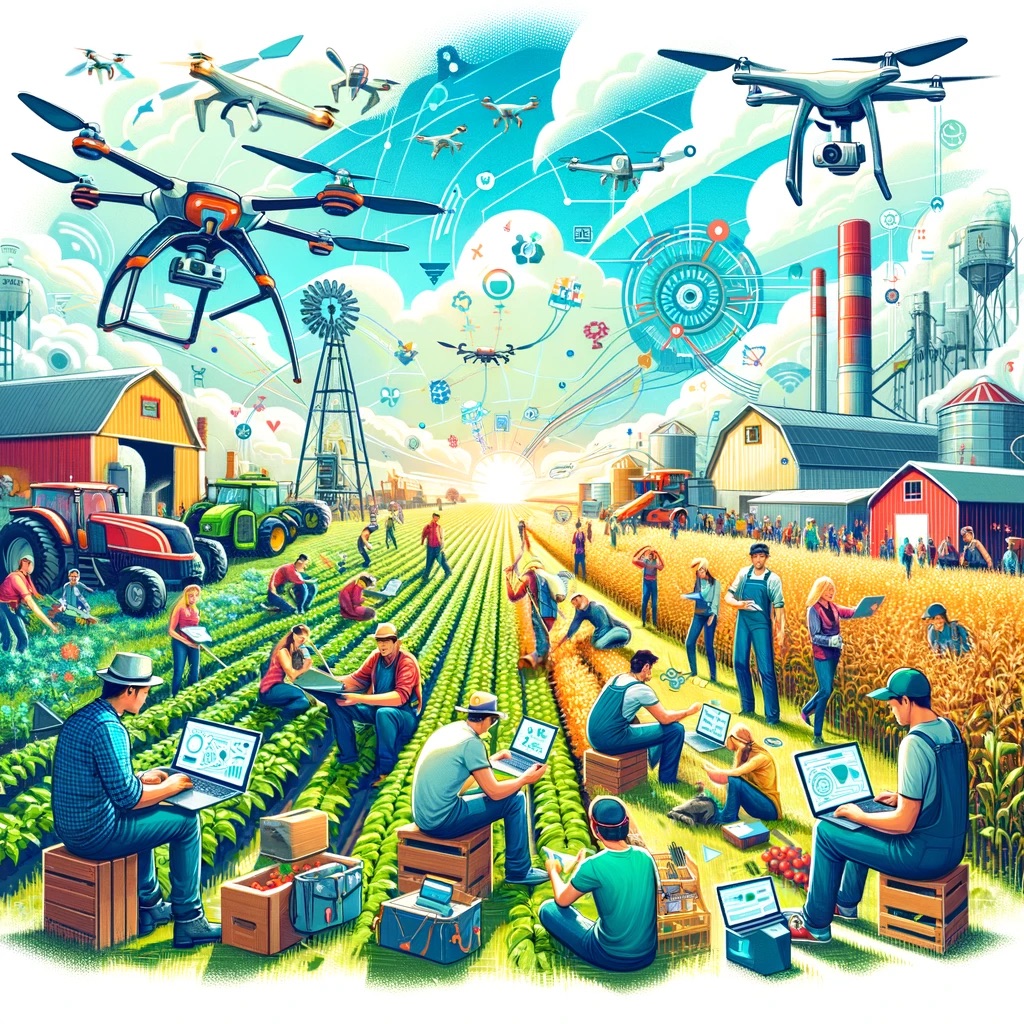
- This event has passed.
AI-Ag TrAC-a-thon – Spring 2024
March 2, 2024 @ 10:00 am – 5:00 pm
AI-Ag TrAC-a-thon 2024 is our very first Translational-AI hackathon
About
TrAC’s Hackathon with a theme of Smart Digital Agriculture

Who can participate?
Students: Graduate and undergraduate students with science and engineering skills and agricultural interests or experience are encouraged to participate. You have an opportunity to explore what technologies can do for agriculture as well as a unique bottom-up approach to understanding beneficiaries and communities (Learn more at www.subsistencemarketplaces.org and www.marketplaceliteracy.org).
Farmers: Farmers with an interest in newer technologies
Why should you participate?
Students: Join us to level up your AI and digital agriculture skillset and for the opportunity to win cash prizes (the first, second, and third places) sponsored by AIIRA, TrAC, Bayer, John Deere, Principal, and Corteva.
Farmers: Learn how farmers can have a voice in innovation. Work with ISU student teams to develop ag technology tools. All farmers will be compensated for their participation
Workshops (problems, datasets, computing resources, and other training from organizing committee)
Initial solution submission
AI-Ag TrACathon event (presentation/demo, immersive activity)
Frequently Asked Questions
Please let us know if you have any questions or comments on registration, participation, and event through email to zhjiang@iastate.edu.
Please assemble your own team (list teammate’s names on the registration form). Teams will have between 3-4 members. You can also fly solo if you feel you can and would like to solve the problem by yourself.
In order to help participating teams develop solutions, we will first host a few workshops to provide guidance for students from Feb 15 – Feb 27. In these workshops, we will help the students with problem and dataset selection and explain technical details about how to access some available computing resources. Additionally, the “roboflow” platform specifically for computer-vision-based solutions will be accessible if necessary. Teams are welcome to use their own resources to develop fast and simple prototype solutions. While in case some teams prefer developing large models, these computing resources may help. Please contact baditya@iastate.edu for additional technical support on the computing resources.
This is an on-campus event for students to work and present, have snacks and meet with local farmers and domain experts from the industry. The location is the Student Innovation Center at Iowa State University.
Any student with some programming experience and a willingness to learn in teams is welcome to participate. Past experience with any of the programming languages (like Python, R, C/C++, etc.) and/or the use of AI/ML packages (like TensorFlow/PyTorch/Scikit-learn) will help.
Please note that the AI-Ag TrACathon is not a traditional hackathon that only gives 24-48 hours to solve challenges. Instead, participants can have sufficient time to work on the challenge problems. Starting morning on Saturday, March 2nd, with a welcoming overview, the immersive activities will take place from 9:00 am – 12:00 pm with showing simulations and interviewing with farmers. The final review round of solutions will start from 2:00 pm – 5:00 pm. Participants will present their solutions to a judge team consisting of local farmers and domain experts. Solutions can always be updated before the presentation. An awards ceremony will be held on Saturday evening (more detail will be announced)!
Each solution will be reviewed and evaluated in detail by a judge team consisting of local farmers and domain experts. Specifically, local farmers will evaluate the solutions based on the feasibility, practicality, efficiency, cost and how many training efforts required for farmers to use. While domain experts will assess the solutions in terms of technical soundness on workflow, dataflow, model/algorithm development, front/backend design, etc., if applicable. Please note that each solution may not necessarily comprise all components mentioned and that they will be reviewed case by case. Showcasing format can be presentation and/or real demo. The potential of easy deployment of the solution to edging devices is significantly valued.
For example, if the team called “Epsilon” selected the problem “computer vision for plant disease detection” to solve, then the team could develop a computer vision-based solution using some shallow or deep learning models to detect plant diseases. The relevant accuracy metrics, such as the confusion matrix, can be used to show the capability of the model. Baseline comparison is a plus to the solution. To demo the results, the team can use the terminal, Streamlit, etc, whatever works for them well. If the team is willing to develop an API to showcase, that would be a plus, too. The entire App development is not required here to avoid the additional UI/UX design and testing. However, some work combining the front and back ends could make the prototype solution complete. Please note that a more comprehensive and thorough design for the solution may receive a higher evaluation score. E.g., the solution with API design could typically outweigh the solution without API design. If the team focuses more on the backend, then a baseline comparison is typically needed. If the team prefers the more balanced front/backend design, then baseline comparison may not be needed.
The TrAC and AIIRA do not hold any rights to the IP. Please consult with your university for individual university policies and for any related IP questions.
Welcome and Introduction
TrACathon Registration Form
Faculty Organizers
Faculty members helping us in organizing the TrAC-a-thon.



